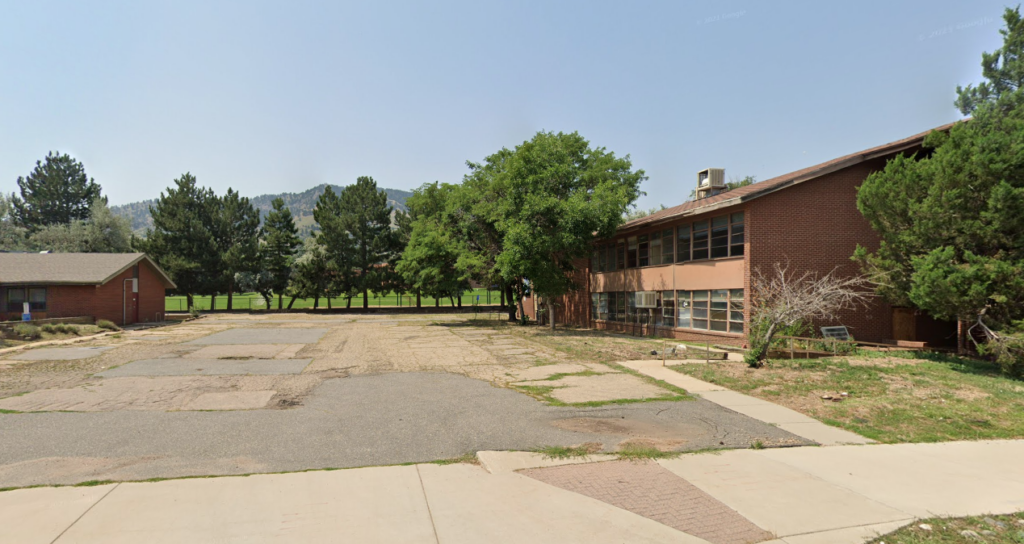
By Eric Budd
In 2016, Boulder city council rejected a proposal to build 50 middle income housing units at Iris and Broadway in North Boulder. The housing developer made a prior attempt to build 94 units at the site, reducing the number of units after initial feedback from Boulder’s planning board.
Following that devastating loss of housing opportunity here in Boulder, I wrote an op-ed (excerpt below) on how the rejection shows exactly the pattern of not building the housing we need.
Boulder prides itself on progressive values, striving to lead in sustainability and limiting climate change. But as city leaders grapple with unaffordable housing and pressures from growth, attempts to find balance in a changing character cause Boulder to fall short of its ideals on many fronts.
In housing specifically, the City Council speaks of a desire to create “15-minute neighborhoods” where residents can walk and bike to services, to improve bus and bike infrastructure, and build housing for the “missing middle” as a greater number of middle-income families can no longer afford to live in Boulder. But an example of one recently proposed housing development accomplishing many of those goals was unanimously rejected by Boulder’s Planning Board.
The housing development, called Iris and B, would have provided 50 middle-income housing units on the city’s most active transit corridor. The project would have fulfilled many of the stated goals: providing a neighborhood coffee shop or restaurant, a diverse mix of housing targeted at 80 to 120 percent of the median area income, connecting to a bike route, and having a six-minute bus ride downtown. The units would have ranged from small efficiency-style up through three-bedroom condominiums for families, using smaller-footprint designs that reduce the amount of heating, cooling and water use per person.
The planning board ruled an increased zoning for the development would be “too dense” for the neighborhood, even though Broadway is a four-lane arterial with frequent bus service. Concerns about worsening traffic from this relatively modest development drew criticism, even though a majority of traffic on the corridor in peak hours results from commuters outside of the city limits, part of Boulder’s 65,000 regional daily in-commuters.
Rather than supporting a project which meets its long-term goals of reducing vehicle miles traveled and providing more affordable housing options, Boulder’s planning board instead supported a development pattern which worsens the city’s long-term difficulties.
Excerpt from Boulder struggles to meet its own ideals, originally published in the Denver Post on December 9, 2016.
Several months after that decision, council again had an option to promote housing at the site by changing the land use designation. And again, by a slim margin, council rejected the proposed change.
Council “supported a land-use designation that none of them seemed to like, paving the way for new housing types that none of them seem to think Boulder needs,” the Daily Camera wrote at the time.
“We’re going to end up with 13 or 14 really, really expensive houses, on a transit corridor, and everyone’s going to say, ‘How’d that happen?'” councilman Bob Yates was quoted as saying. “And I’m going to say, ‘Well, way back on April 11, council made a decision that maybe wasn’t well thought-out.'”
Iris and Broadway is once again up for redevelopment. The proposal calls for 13 townhomes, each just under 3,000 square feet, on the lot now zoned for mixed-use residential. The project is by-right, meaning that council and planning board will not likely be involved in the process.
We don’t have a current estimate of the price of these homes, but a recent proposal at 2504 Spruce includes 2,600-square-foot townhomes that will sell for up to $2.4 million each, according to developers.
Housing markets in Boulder are fundamentally broken. Rising wealth inequality coupled with successful NIMBY campaigns to stop new housing has created a truly dire situation. On top of losing an additional 1,000+ homes in the area from the Marshall Fire, Boulder’s housing problems are only due to increase for years.
Council can’t affect what happens at 3303 Broadway. Our housing affordability crisis hasn’t changed, but one thing has: We have a city council that’s the most pro-housing in decades.
Council needs to ensure future housing meets our city’s goals. Take opportunities to “upzone” land that is centrally located and accessible by biking, walking and transit.
Further, we can and should look at some of their housing ideas proposed by council members for 2022 and how they can address our housing affordability challenges:
- Encourage smaller, less expensive housing through code requirements
- Create a deed-restricted middle-income housing program, with density incentives and pilot projects
- Change inclusionary housing fees to stop incentivizing larger units
- Shorten the process and reduce city fees for projects with more than half affordable units
Our council has some great ideas to move forward. It’s time for them to meet the moment and implement them now.
Eric Budd is a resident of Boulder working on equitable housing and transportation policy. Follow him on Twitter: @ericmbudd
Got a different take? Send your own op-ed to boulderbeatnews@gmail.com
Housing Opinion affordable housing Boulder city council city of Boulder Daily Camera density Denver Post development housing inclusionary housing middle-income housing missing middle Planning Board townhomes
